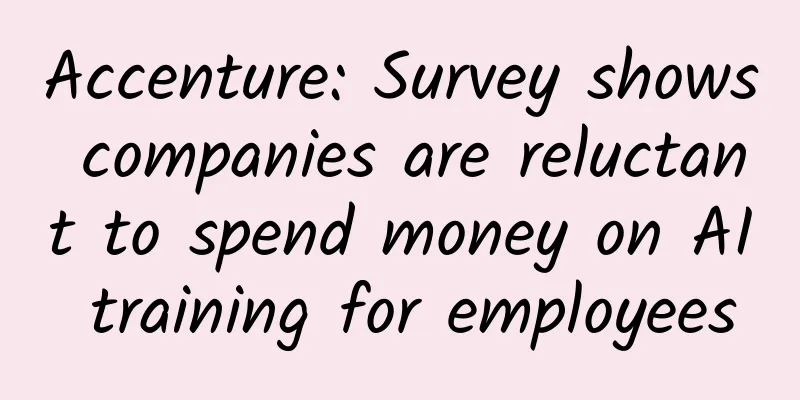Accenture: Survey shows companies are reluctant to spend money on AI training for employees

|
Most corporate executives expect artificial intelligence to significantly change the way their companies operate in the coming years. But despite the technology’s growing role, few companies have begun training their employees to adapt to the changes. The above conclusion comes from a survey of more than 1,200 CEOs and senior managers by international professional services giant Accenture PLC (ACN), which released the survey report at the World Economic Forum held in Davos, Switzerland last week. Almost all respondents, who come from a variety of industries and work for companies that currently use AI in at least some form in their daily operations, said they plan to use intelligent tools to enhance their employees’ work capabilities. 74% of respondents expect that various tasks at work will be automated to a large or very large extent through artificial intelligence in the next three years; as many as half of the respondents said that previous job descriptions have become obsolete as certain office jobs are automated. Still, only 3% of executives surveyed said they planned to significantly increase spending on training to help employees adapt to new AI-driven technologies, an investment Accenture researchers call “re-skilling.” This disconnect can cause many employees to panic, fearing that their jobs will be replaced by automation technology, and those who feel the most insecure are those doing routine or repetitive work. Most executives surveyed by Accenture expect their companies to see a net increase in jobs over the next three years driven by artificial intelligence, but just over half believe that humans and machines working together is a key component of their growth strategy, according to the survey. Accenture researchers warned that if companies are less willing to invest in employee training, their ability to adopt artificial intelligence on a large scale may be affected. From: wsj |
<<: Gigya: 2017 Consumer Attitudes towards Privacy and Security Report
>>: Why Internet companies are increasingly sponsoring popular variety shows
Recommend
About 180 million years ago! Chinese fossils reveal the oldest insect "marriage flight" behavior
In 1974, villagers in Xiyang Village, Lintong Dis...
Geely to invest at least $1.9 billion to revive Luster sports car
Zhejiang Geely Holding Group is considering spend...
Seriously, it’s better to throw your underwear and socks into the washing machine than to wash them by hand!
When you are busy at work, you will inevitably wa...
How did I manage to surpass Mop.com in terms of data in just two years? Many of these methods are still applicable today!
The purpose of writing this article is just to su...
DXOMARK overturned a large-scale double standard scene: mistook the screen protector for OLED screen burn-in, and gave the same screen two ratings
Recently, former OPPO vice president Shen Yiren c...
tr90 weight loss: How to optimize corporate SEO website? What are the strategies for SEO?
Some technologies (maybe web page elements) are v...
Simple brick-moving 0 virtual project, as long as you spend your precious time, it is only a matter of time before you can do it
Today a member came to me to get some information...
Why doesn’t Apple have iPhone 2 and iPhone 9?
Recently, Apple's autumn new product launch c...
18 ways to make your app stand out!
Hundreds of apps are submitted to the App Store e...
Please set your alarm and come enjoy the moon and three planets together!
February 2, 2024: February's three bright pla...
The mystery of dark energy: Is the force behind the universe's expansion variable?
Author: Duan Yuechu and Huang Xianghong There are...
Pickup Master TV: Chen Dali's "Live Game Master 2.0" full version
This course is "Live Game Master 2.0" b...
Thought it was a heart attack but couldn't find the cause? This torturous disease turns out to be around us!
Expert of this article: Zhao Wei, MD, associate c...
There are more than 6,000 stars visible to the naked eye. Are they all in the Milky Way? Not all of them
It is a wonderful thing to look up at the starry ...
[Moving bricks for profit] Mengtu earns 100,000 yuan a year in the first phase of the basic course + advanced course of the brick-moving team
[Moving bricks for profit] Mengtu earns 100,000 y...









